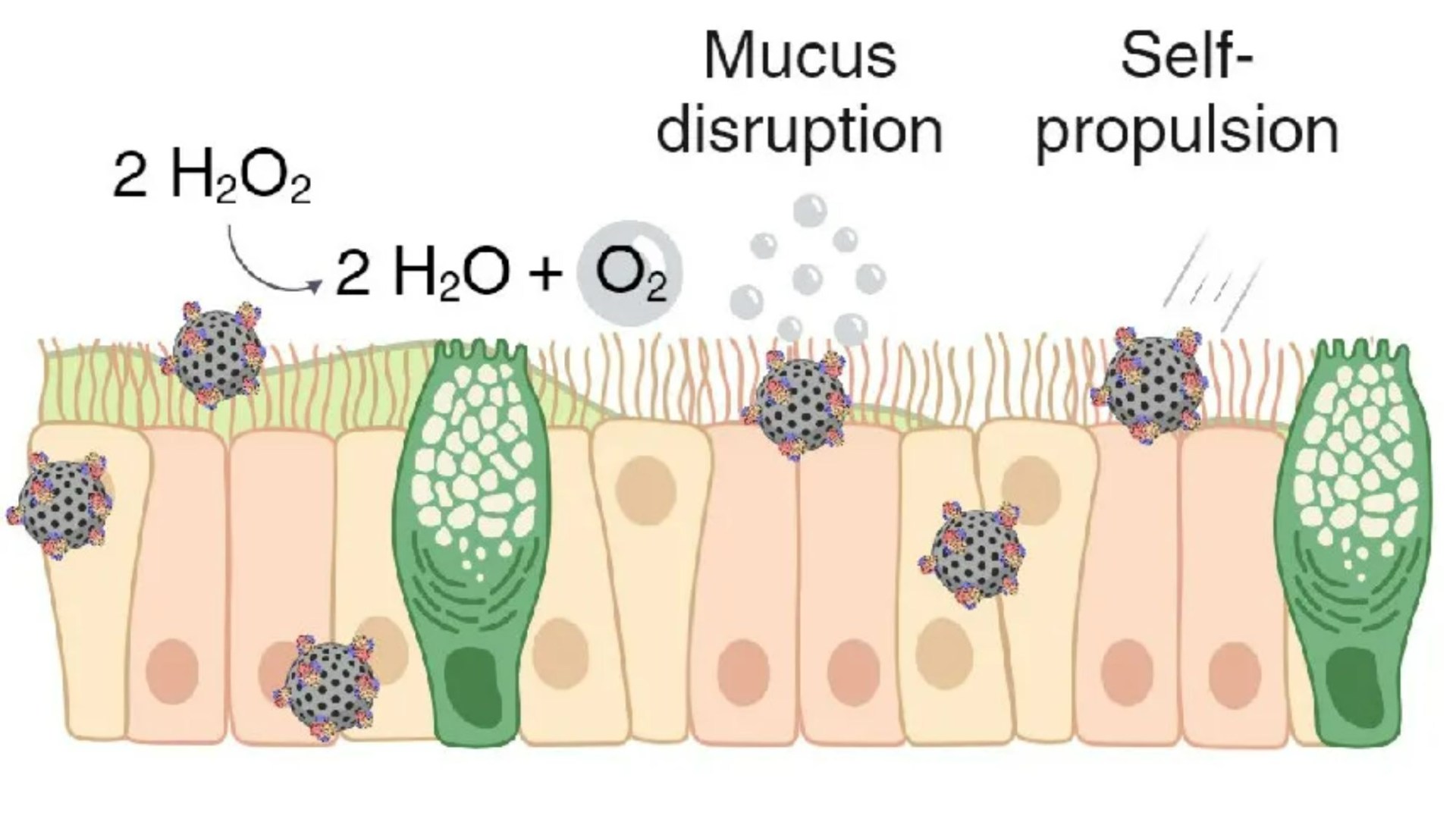MICROSCOPIC “snot bots” smaller than a cell could deliver drugs into the body by sneaking through defences “like a Trojan horse”.
Snot acts as a sticky, protective barrier against germs, but it can also make administering certain medications harder as it traps the drug molecules.
1
The slimy substance – also referred to as mucus – doesn’t just line your nose, but also protects your lungs, stomach, intestines and eyes by swallowing up pathogens.
Now, researchers have developed tiny bots that bypass this snot barrier.
Using mice, a team of scientists from the American Chemical Society demonstrated how their snot bots can push through the defensive, sticky layer of mucus and potentially deliver drugs more efficiently.
The bots are so small, 10 of them lined up together would only span the width of a red blood cell.
Each bot is made up of porous particles that can be filled with drug molecules, helping to sneaks meds through the body’s defence system like a Trojan hose.
Researchers attached catalase enzymes – biological catalyst that speed up the rate of chemical reactions in cells – to the bots.
They administered them in mice also with mucus liquefying hydrogen peroxide, which helped propel the snot bots.
Next, the team built their own model of an intestinal mucus layer, using human intestinal cells they’d grown in a lab.
The bots passed through the model’s mucus layer within 15 minutes, without significantly harming the cells underneath.
Mucus layers tend to be cleared and regenerated every 10 minutes to four and a half hours, according to researchers so it was important that the bots didn’t take too long to penetrate the snot.
Estimated that this 15-minute time frame could prevent the bots from getting trapped and removed by the mucus layer.
Scientists conducted further tests in the colons of mice and saw similar results.
The nanorobots were able to bypass the snot layer without damaging the cells and tissues underneath.
About 28 per cent of snot bots they deployed were able to cross the the mucus barrier.
The researchers believe that their snot bots are a promising way to deliver drugs that would usually be blocked by the mucus barrier.
The study was published in the journal ACS Publications.
Previous nanorobot research

IT COMES after researchers developed nanorobots with hidden “lethal weapons” that were able to stop tumours from spreading without harming surrounding healthy tissue.
These tiny machines were once again tested on mice.
Yang Wang, a researcher in the Department of Medical Biochemistry and Biophysics at the Karolinska Institutet, said: “We now need to investigate whether this works in more advanced cancer models that more closely resemble the real human disease.
“We also need to find out what side effects the method has before it can be tested on humans.”
Read more on the research here.




